Agriculture & Environment
NbS4Tea Project Team Makes Great Progress, Deploys Drones for Data Collection
Published
8 months agoon

****Funded by the Danish Fellowship Centre under Denmark’s Ministry of Foreign Affairs, NbS4Tea is a five-year initiative aimed at enhancing climate resilience and tea productivity in Uganda.
Launch of drones for data collection
The Nature-based Solutions for Tea (NbS4Tea) project has registered a significant milestone with the successful deployment of drones to improve environmental and agricultural data collection.
On 19th June 2025, the project team officially launched the drones at the Rwebitaba Tea Research Centre in Kyenjojo District, the project’s main research hub. The launch event included hands-on training sessions by Mr. Timothy Mutungi, a certified Remote Sensing Drone Pilot. Mr. Mutungi provided detailed instruction on drone operation, safety procedures, and data acquisition techniques specifically tailored to the project’s goals. The training was attended the core NbS4Tea researchers as well as students supported by the project.

By utilizing drone technology, the team will be able to capture high-resolution imagery and gather critical environmental data across vast tea-growing areas. This will enable more precise assessments of biodiversity, soil health, water use, and overall ecosystem services. The valuable insights generated will guide the development of sustainable, nature-based agricultural practices with the potential for widespread adoption throughout the tea industry.
About the NbS4Tea Project
NbS4Tea is a five-year initiative aimed at enhancing climate resilience and tea productivity in Uganda. Funded by the Danish Fellowship Centre under Denmark’s Ministry of Foreign Affairs and led by Dr Emmanuel Arthur from Aarhus University, the project is being implemented through a consortium of Ugandan and Danish institutions namely: Makerere University, the National Agricultural Research Organization (NARO), Uganda, Uganda Tea Association, Aarhus University, Denmark, and Kick-start International.

The primary objective of the project is to sustainably close the tea yield gap in Uganda by developing research-driven, nature-based solutions that enhance the climate resilience of tea production systems. This involves identifying climate-resilient tea varieties, integrating tea prunings and banana by-products, utilizing nitrogen-fixing agroforestry trees, and improving irrigation management. The approach emphasizes socio-economic feasibility, capacity building in research, and a market-oriented, multi-stakeholder collaboration to ensure both environmental and economic sustainability.
At Makerere University, the project is coordinated by Dr Alex Nimusiima from the Department of Geography, Geo-Informatics and Climatic Sciences at CAES. Other Project members are; Dr Grace Nakabonge from the Department of Forestry, Biodiversity and Tourism; Dr Prossy Nakawuka from the Department of Agricultural and Bio-systems Engineering; Dr Twaha Ali Basamba from the Department of Agricultural Production; and Dr Alice Turinawe from the Department of Agribusiness and Natural Resource Economics.

Specific objectives
- Identify and quantify climate change impacts on tea yield and quality based on historical and newly obtained data and novel data mining methods.
- Screen, select and recommend tea varieties adapted to abiotic (drought and heat) and biotic stresses (diseases and pests).
- Develop new knowledge on the potential of local waste biomass (tea prunings, banana pseudostems and peels) as soil amendments- mulch, compost, biochar, to recycle nutrients, improve soil fertility, increase carbon sequestration and alleviate drought.
- Reveal NbS through agroforestry combined with organic mulch, irrigation and resilient tea varieties that increase biodiversity and tea yield.
- Innovate new methods to enhance tea production under climate change through rainwater harvest and climate-smart irrigation infrastructure.
- Empower vulnerable groups (women, youth, and people with disabilities) in tea production and processing to ensure multi-actor involvement and socio-economic benefit outreach of the proposed NbS in tea cultivation and production.
- Identify export market strategies for NbS tea products, aligned with consumer preferences.

Progress thus far
Launched in January 2024, the project, organized in five work packages, has registered significant progress. Each of the work packages listed below supports one PhD student and one Masters’ student. The PhD students are: i) Mr. Adiga Hassan from the Department of Geography, Geo-Informatics and Climatic Sciences at CAES conducting research under work package 1; ii) Ms. Sarah Namayengo from the Department of Forestry, Biodiversity and Tourism conducting research under work package 2; Ms. Vivian Namutebi from the Department of Soil Science and Land Use Management undertaking research on work package 3; Mr. Keneth Chelimo from the Department of Agricultural and Biosystems Engineering conducting his research under work package 4; and Ms. Moreen Asasira from the Department of Agribusiness and Natural Resource Economics focusing on work package 5. The Masters students are: i) Ms. Evelyn Katasi from the Department of Environmental Management at CAES (work package 1), Mr. Vereriano Turyahebwa from Department of Forestry, Biodiversity and Tourism (work package 2); Mr. Ben Okurut from the Department of Soil Science and Land Use Management (work package 3); Mr. Augustine Okot from the Department of Agricultural and Biosystems Engineering (work package 4); and Mr. Augustine Kigozi from the Department of Agribusiness and Natural Resource Economics (work package 5)

Work packages and achievements registered
Work Package 1: Climate change impacts on tea yield and quality – Headed by Dr. Alex Nimusiima
This work package centres on the analysis of historical and projected climate conditions in the study area. It examines how current climate patterns influence tea production, as well as the potential effects of future climate change on tea yield and quality.
Progress
i) A household survey assessing the socio-economic status of tea farmers and the effects of climate variability on their livelihoods has been completed.
ii) The collected data has been cleaned, and the Masters student supported under this work package is currently writing her thesis based on the survey findings.
iii) A historical climate analysis of the study area has been conducted by the PhD student, who is now preparing a manuscript.

Work Package 2: Screening & selecting tea genotypes for resilience to abiotic and biotic stresses – Headed by Assoc. Prof. Grace Nakabonge
This work package focuses on evaluating existing tea genotypes for their resistance to pests and diseases, using chlorophyll fluorescence imaging as a diagnostic tool.
Progress
i) A screen house has been constructed to serve as the experimental site.
ii) Germplasm from two tea varieties is currently being cultivated in the screen house in preparation for the upcoming experiments.
iii) A drone has been acquired to assist in data collection for this work package.

Work Package 3: Evaluation of NbS for climate resilience, higher yield and biodiversity- Headed by Assoc. Prof. Twaha Ali Basamba
This focuses on the characterization of mulch and biochar derived from tea prunings to improve soil health. It also aims to quantify the added value of Nature-based Solutions (NbS) in enhancing tea productivity, promoting climate resilience, and supporting biodiversity.
Progress
- So far, Biochar has been produced from tea prunings and characterized.
- The Masters student supported under this work package is writing his thesis on the results of biochar characterization.

Work Package 4: Innovating smart and scalable irrigation technology for improved tea production- Headed by Dr. Prossie Nakawuka
This work package aims to develop and evaluate smart, scalable irrigation solutions to boost tea production. It focuses on assessing how irrigation impacts tea yield and quality, measuring water use efficiency, and analyzing the economic returns of irrigation practices. Additionally, it explores deficit irrigation and climate-resilient strategies to ensure sustainable tea farming in changing environmental conditions.
Progress
- The irrigation infrastructure is now in place and fully operational at Rwebitaba Tea Research Centre in Kyenjojo District.
- The experimental plots for irrigation experiments are already in place with water pipes.

Work package 5: Socio-economic assessment of tea-agroforestry and selected tea varieties – Headed by Dr. Alice Turinawe
This work package emphasizes co-creation within multi-stakeholder innovation networks to evaluate the economic feasibility and market access of tea agroforestry systems. It also focuses on promoting gender balance and understanding consumer valuation of Nature-based Solutions (NbS) tea from Uganda.
Progress
To date, two co-creation workshops have been successfully conducted and the Masters student under this work package is currently analyzing the workshop results as part of their research.

Expected outputs and outcomes
- Increased tea production, productivity, and biodiversity through the adoption of NbS.
- Increased research and technical capacity of Makerere and R-ZARDI.
- Holistic stakeholder insight on economic feasibility, consumer acceptance and market access strategies, especially for vulnerable groups in the tea value chain.
- Increased job prospects for youth and women in tea production sub-sectors.
- Improved social status and increased incomes of tea farmers, traders, and exporters.
- Improved economic and environmental quality by recycling biomass waste into value-added products dedicated to soil enhancement.
- 4+ high-yielding tea genotypes adapted to drought and heat, diseases and pests.
- 15+ scientific articles, conference presentations.
- Five PhDs and Five MSc degrees.
- Market access assessment and empowerment.

Details on the project: https://news.mak.ac.ug/2024/01/new-caes-project-to-improve-tea-production-in-uganda/
More photos from the event




You may like
-
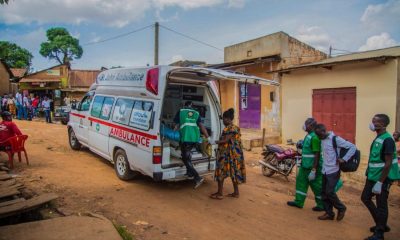

Holding the System Together During COVID-19: Steven Kabwama’s Research on Care Continuity
-


Dr. Samalie Namukose and the Quiet Work of Making Nutrition Count
-


Call for PhD Student Fellowships under H-DATA
-


From Adversity to Excellence: The Inspiring Journey of Makerere’s Best Science Student, Esther Ziribaggwa
-


Call for Applications: Admission to Postgraduate Programmes 2026/2027
-


EU Earmarks Shs19.8bn for 15 Joint PhD Scholarships in Health, Environment Research
Agriculture & Environment
From Adversity to Excellence: The Inspiring Journey of Makerere’s Best Science Student, Esther Ziribaggwa
Published
1 day agoon
February 6, 2026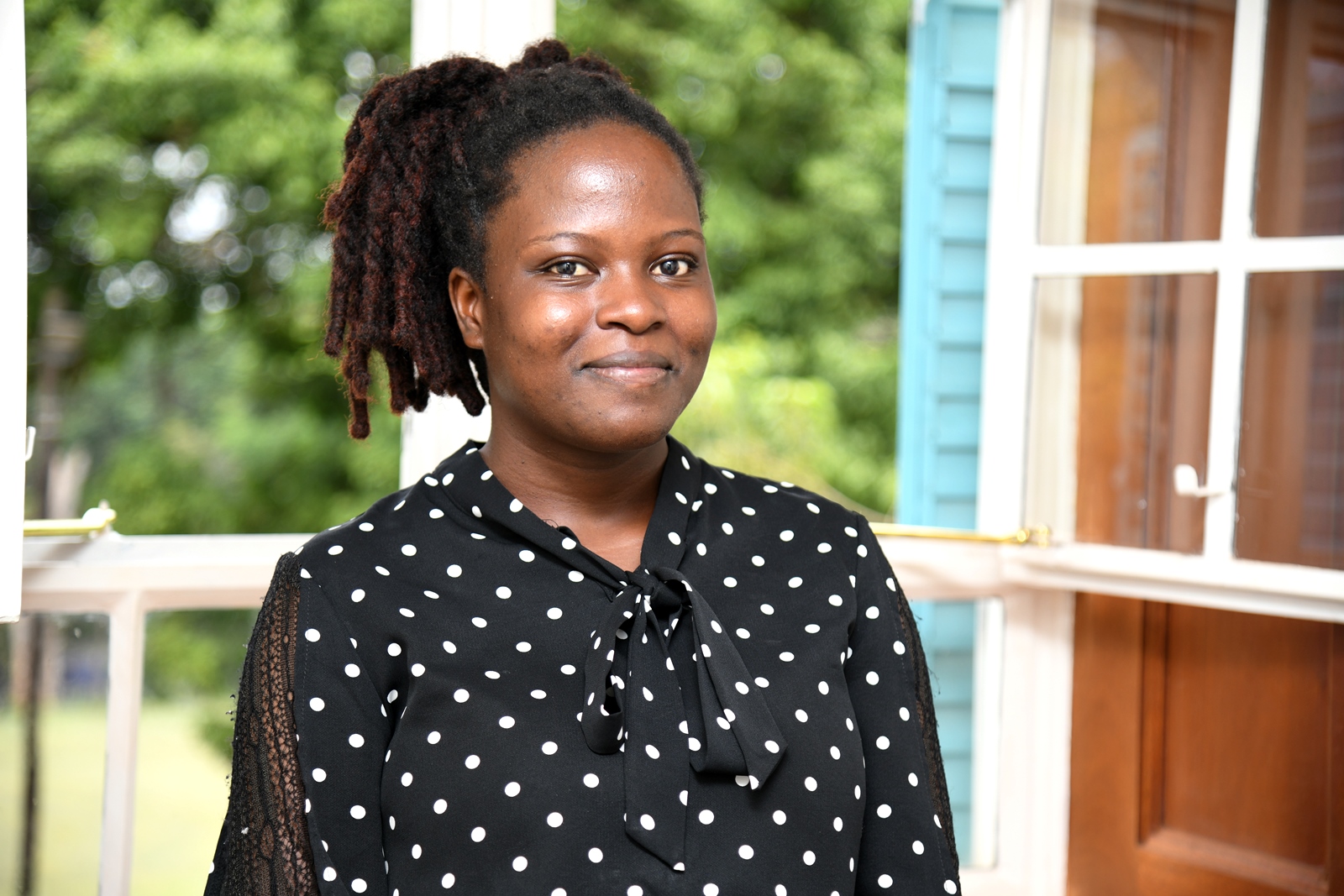
Growing up in Nkonge Village, Kyampisi Sub County in Mukono District, Esther Ziribaggwa learned early the meaning of resilience.
Born to Mr. Musisi Godfrey, a farmer, and Ms. Babirye Resty, a market vendor in Seeta, Mukono District, her journey from humble beginnings to becoming Makerere University’s top-performing student in the Sciences is a testament to her determination, hard work, and unwavering faith. She attained a CGPA of 4.77 in the Bachelor of Agricultural and Rural Innovation, a programme taught at the College of Agricultural and Environmental Sciences (CAES). She will be graduating from Makerere University on 24th February 2026, the first day of the 76th graduation ceremony.
Educational Journey and Navigating the Financial Hurdles to remain in School
Ziribaggwa’s journey to academic excellence has not been smooth. But her parents’ sacrifices laid the foundation for her dreams, even as life presented relentless challenges.
She began her education at Frobel Day and Boarding Primary School and later joined Seeta Boarding Primary School, where she excelled with 9 aggregates in her Primary Leaving Examinations. However, the transition to secondary school presented challenges that tested her resolve.
She joined Mpoma Royal College in Mukono District alongside her sister, who had scored 12 aggregates. Shortly after starting Senior One, their father fell seriously ill, requiring an intestinal surgery, and could not continue to work. With the family unable to pay school fees, both sisters dropped out for a year. It was only through the compassion of the school bursar and the then Head Teacher, Ms. Namazzi Connie, who reduced their fees from 800,000 to 380,000 Uganda Shillings, that Ziribaggwa and her sister were able to return. “The year out of school was a huge setback,” she recalls, “but I focused on catching up. I knew I couldn’t waste this second chance.” Her perseverance paid off. Despite the lost year, she completed her O’ Level with 25 aggregates in eight subjects.
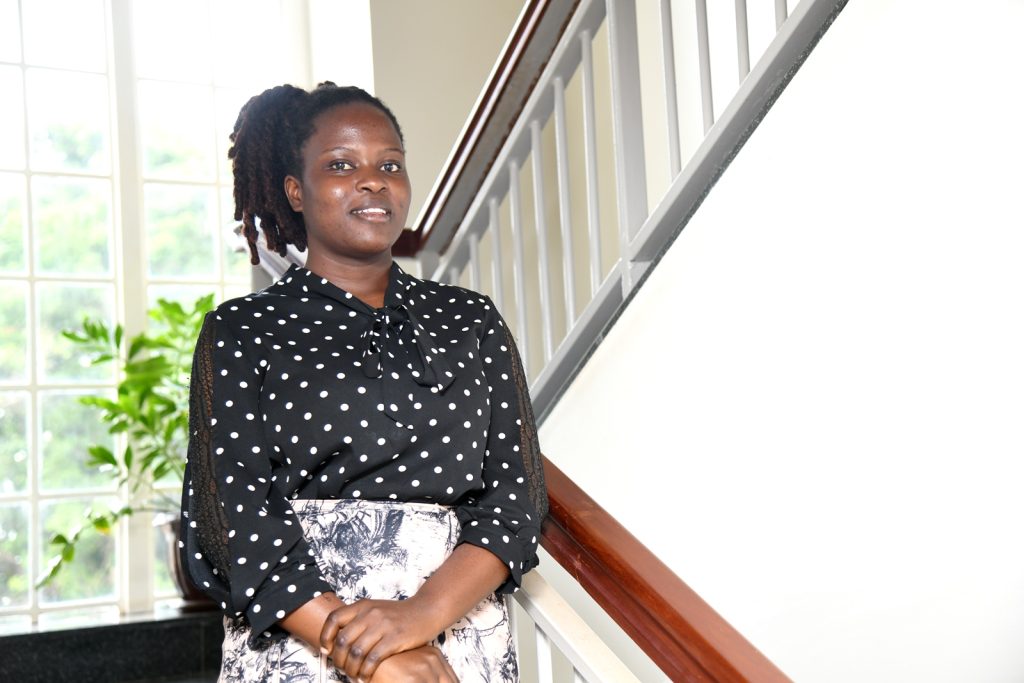
Her A’ Level years were marked by similar challenges. Due to financial constraints, Ziribaggwa attended three different schools. She initially enrolled at Seat of Wisdom Boarding School in Kayunga but was forced to leave when her family could no longer afford the fees. At the time, her father, the family’s sole breadwinner, had undergone a second operation and was unable to work. Her mother, a market vendor, stepped in to support her education and transferred her to Paul Mukasa Day and Boarding Secondary School in Mukono District as a day student. However, the long daily commute was exhausting, leading to a final transfer to Godmark High School in Mukono District where she completed her A’ Level in 2019 with 15 points in Geography, Economics, Agriculture, and Subsidiary Mathematics.
After completing secondary school, Ziribaggwa waited two years before joining university due to financial constraints. Although she had been admitted under the private sponsorship scheme to pursue a Bachelor of Statistics, she was unable to raise the required tuition. Following the outbreak of COVID-19 and the subsequent lockdown, an opportunity arose for her to obtain government sponsorship. At the time, there were no Senior Six leavers, prompting Makerere University to invite applications from candidates who had completed Senior Six within a specified period. The cut-off points across programmes were lowered, enabling her to secure government sponsorship to pursue a Bachelor of Agricultural and Rural Innovation.
Appreciation
She is deeply grateful to the Almighty, her parents, and everyone who supported her educational journey. She is specifically thankful to the Government of Uganda for sponsoring her university education, and to Ms. Namazzi Connie, her O-Level Head Teacher, for subsidizing her school fees. She is also grateful to all her lecturers at CAES and Jesus is King Ministry under the Makerere University Christian Union.
Message of Resilience to Fellow Students
To the students navigating similar challenges, Ziribaggwa shares a message of encouragement. “Never let your situation break you. There’s always going to be challenges, sometimes pushing you to what feels like a point of no return. But those moments should not define your future – they are a test of your resilience. Strive to outgrow them and become a better person, even when the journey feels impossible.”
Career and Aspirations
Ziribaggwa currently works in the extension division of Slow Food Uganda, an agricultural organization based in Mukono District, where her work focuses on women and youth. Although her dream was to become a medical doctor, her love for agriculture has grown over time and does not regret taking on this path. She aspires to become a Senior Agricultural Officer in the country, with the goal of improving farming conditions, particularly in the rural communities. Growing up in a farming community exposed her to many challenges faced by farmers, including unpredictable weather conditions that necessitate irrigation support, and improper use of agrochemical inputs, which pose risks to both soil quality and human health.
Ziribaggwa hopes to pursue further studies in crop and soil science. She draws inspiration from exemplary leaders like Hon. Rebecca Kadaga, former Speaker of the Parliament of Uganda, and First Deputy Prime Minister and Minister for East African Community Affairs. “I have always admired her for being hardworking, resilient, and eloquent,” she says, seeking to emulate these qualities in her own journey.
Agriculture & Environment
Call for Applications: QCF Postdoctoral Research Fellowships
Published
3 weeks agoon
January 20, 2026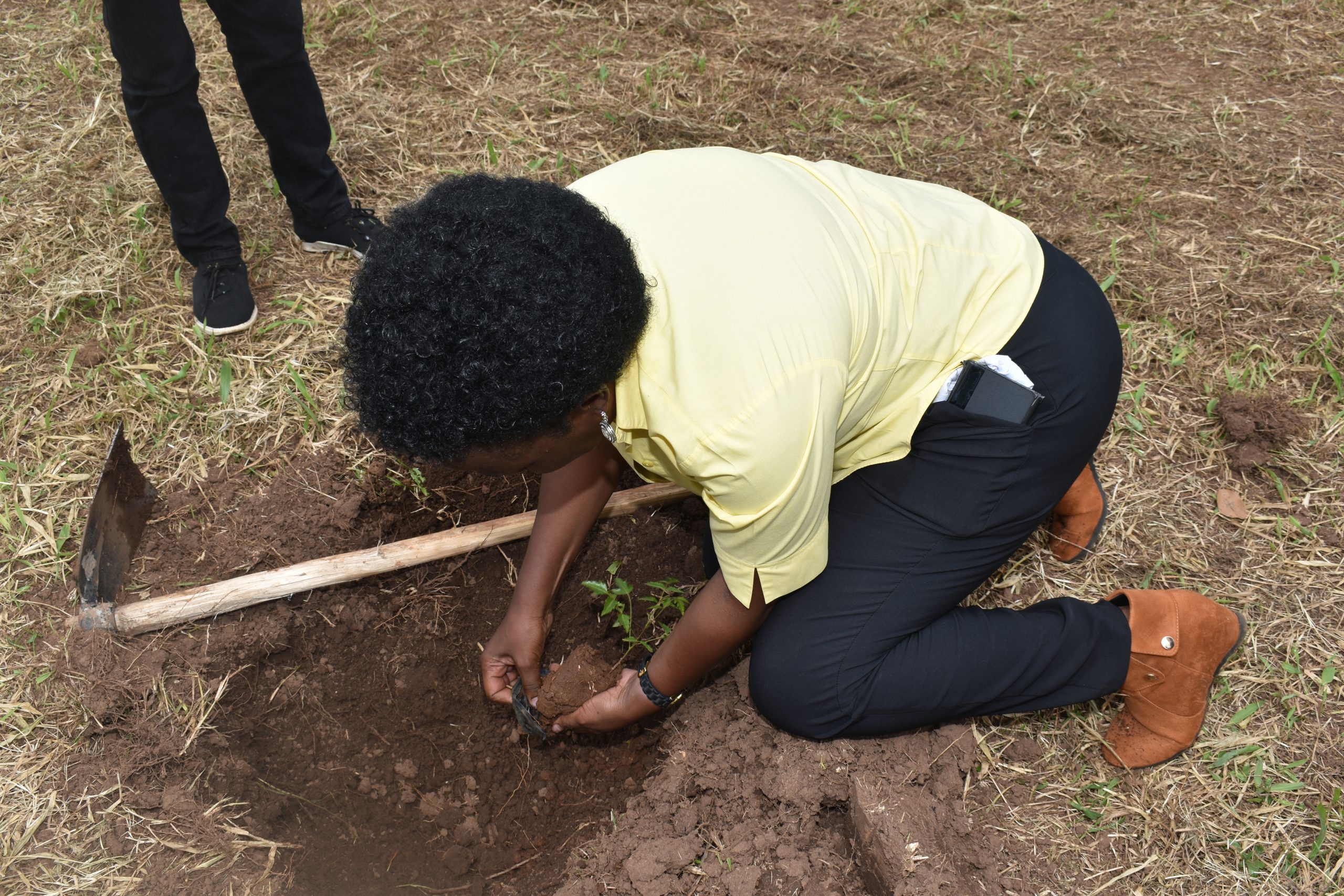
Makerere University’s Department of Geography, Geo-informatics and Climatic Sciences in partnership with Quadrature Climate Foundation and Red Cross Red Crescent Climate Centre are seeking two fellows for Quadrature Climate Foundation (QCF) Fellowship Programme. This is a two-year post-doctoral programme fully funded by QCF, which is an independent charitable foundation working for a greener and fairer future. Applications for the two-year post-doctoral fellowship are invited from individuals with demonstrated interest and expertise in locally led adaptation to climate change research. This initiative is a unique and excellent opportunity to expand the network of interested individuals with researchers and decision-makers, as well as deliver action-oriented research to inform policy and practice. Depending on their interest, each applicant should choose one of the two thematic areas offered under the fellowship program:
- Knowledge co-creation for locally led adaptation to climate change
- Decentralised decision making for effective climate change adaptation and resilience
The Fellow working on the Thematic Area 1: knowledge co-creation for locally adaptation will explore collaborative learning processes (including informal learning) for climate change adaptation among smallholder farmers with focus on Uganda, with linkages to related work in Bangladesh, Mozambique and Nepal. The overall intention is to generate understanding of how decision making processes, across scales, can be linked to local and context specific knowledge systems and process for epistemic just adaptation. The key research questions are:
- What does the process of co-creating knowledge for locally led climate change adaptation look like in a rural smallholder farming setting of a Least Developed Country (LDC)?
- What are the possibilities, promises and pitfalls of knowledge co-creation for locally led adaptation planning?
The research will intentionally contribute to methodological and practice advances in co-creation of knowledge for locally led climate change adaptation.
The research on Thematic Area 2: decentralised decision making for effective adaptation and resilience will undertake scientific interrogation of a climate finance mechanism that has been designed for locally led adaptation and resilience in Uganda. The Fellow will largely focus on testing selected assumptions behind the design of the mechanism. The key questions are:
- How does effective locally led climate change adaptation and resilience building investment decision making look like in practice?
- What works and how does it work? What does not work and why?
Key considerations in the research will include local leadership, inclusion, context specificity, cross-scale, and capability strengthening. The targeted contributions of the fellowship include improved knowledge management for climate resilience planning and decision-making, strengthened evidence-based research-policy-practice dialogues, framework(s) for integrating local and experiential knowledges in resilience building investment decision making processes, among others.
The Fellows will be based, full-time, at Makerere University, Kampala as a core member of the team working on locally led adaptation and resilience. Their work will be conducted under the auspices of the Least Developed Countries Universities Consortium on Climate Change (LUCCC) through which Makerere University is engaged in research and knowledge management collaborations. The Fellowships will focus on Uganda, but with deliberate linkages across LDCs, which might necessitate travels for in-person working meetings.
Roles and responsibilities of the Postdoctoral Research Fellow
The Fellow will be highly motivated to work with a transdisciplinary research team, grow their research expertise, engage with climate change researchers, decision-makers, practitioners and generate different categories of publications. Makerere University will appoint a locally based mentor to the Fellow to provide professional development support. Where needed, the Fellow will participate in teaching and community outreach activities including knowledge sharing in ways that foster collaborative research for adaptation policy and practice.
Requirements:
- A PhD, awarded within the previous three years, in a related discipline (e.g., geography, climate and society, sustainability, adaptation governance, epistemic justice, climate finance).
- Knowledge and experience of locally led adaptation in the agriculture sector.
- Experience in synthesizing and managing datasets and literature.
- Experience in, and knowledgeable of, participatory and collaborative action-oriented research methodologies and tools.
- Demonstrated ability to produce research information products for different audiences.
- Excellent written and verbal communication skills in English
- Demonstrated interest and experience in transdisciplinary collaborations across-scales including with local communities, decision-makers and practitioners in LDCs
- Experience in giving international oral presentations and interest in public communication for wide-ranging categories of audiences
- Data and information visualisation skills will be an added advantage
Application requirements:
Applicants should submit a single PDF with: (i) an application letter not longer than 2 pages that includes indication of theme of interest, a description of research interests, research expertise, and an explanation of how they can work as part of the transdisciplinary research team in line with the fellowship objectives described above; (ii) a CV including a publication list; (iii) copies of academic transcripts and/or certificates; (iv) an example of written work; (v) email addresses of two references who have been directly involved in their PhD research.
Applicants must submit the PDF application document to colocal.caes@mak.ac.ug. Please type “LUCCC PDR Application: COLOCAL-Makerere” as the subject line of the email.
Closing date
Midnight (GMT+3) on 27th February, 2026 or until the position is filled.
Selection process
Eligible and complete applications will be considered followed by communication with short-listed applicants. Makerere University, in consultation with Quadrature Climate Foundation and the Red Cross Red Crescent Climate Centre, will conduct interviews of the short-listed applicants.
If you have not heard from Makerere University within two months of the deadline, please assume your application has been unsuccessful.
Contact details for enquiries about this post-doc fellowship: colocal.caes@mak.ac.ug
Makerere University reserves the right to
- Disqualify ineligible, incomplete and/or inappropriate applications;
- Change the conditions of the award or to make no awards at all
-The QCF Fellowship Programme is a two-year, post-doctoral programme fully funded by Quadrature Climate Foundation (QCF).
-Quadrature Climate Foundation is an independent charitable foundation working for a greener and fairer future. For more information on QCF, please visit qc.foundation.
Agriculture & Environment
Mak-CAES Trains Small-Scale Processors on Soybean Value Addition & Product Development
Published
2 months agoon
December 16, 2025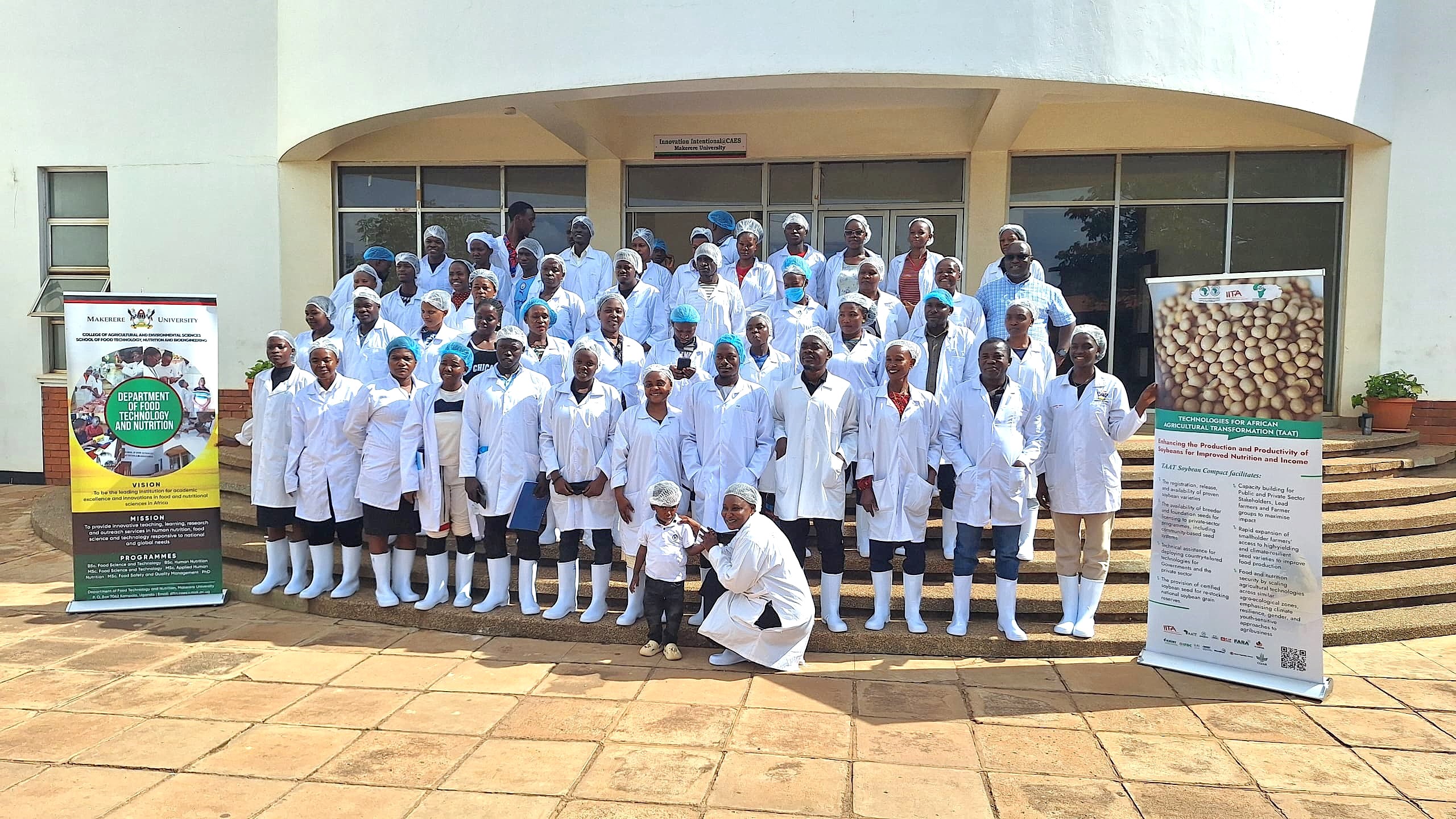
The Department of Food Technology and Nutrition (DFTN), Makerere University, in collaboration with Smart Foods Uganda Ltd, successfully conducted a five-day intensive training on soybean value addition and product development from 24th to 28th November 2025. The training was implemented with support from IITA Uganda under the Training for African Agricultural Transformation (TAAT) Soy Compact Project, aimed at strengthening agro-processing capacities and promoting soybean utilization for improved nutrition and livelihoods.
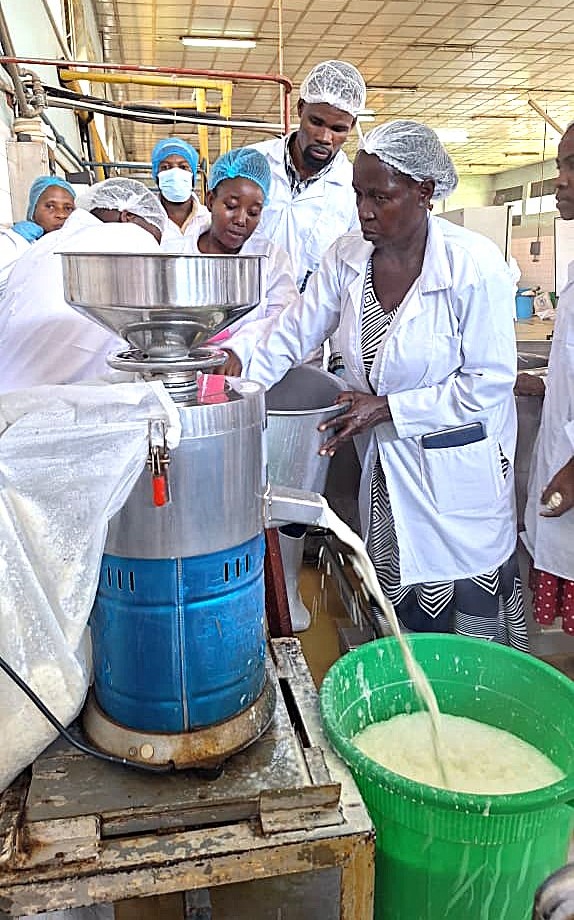
The training program was highly practical and skills-oriented, featuring extensive hands-on sessions designed to equip participants with applicable processing and product development competencies. Most of the practical activities were hosted at Makerere University’s Food Technology and Business Incubation Centre (FTBIC). Participants also benefited from an industry exposure and experiential learning session at Smart Foods Uganda Ltd in Bweyogerere, where they gained first-hand insights into commercial-scale soybean processing operations, quality control systems, and product marketing strategies.

Key thematic areas and technologies covered during the training included soybean nutrition and associated health benefits; assessment of quality attributes of soybeans and soy-based products; application of Good Hygiene Practices (GHP) and Good Manufacturing Practices (GMP); and processing of high-quality soy products. Practical sessions focused on the production of soymilk, tofu, soy yoghurt, soy flour, and soy coffee, as well as the formulation of soy-fortified composite porridge flours. Participants were also trained in the development of various soy-based bakery products, including bread, mandazi, daddies, and baghia. In addition, sessions on marketing, branding and positioning of soy products, as well as UNBS certification requirements and documentation, were conducted to enhance market readiness and regulatory compliance.
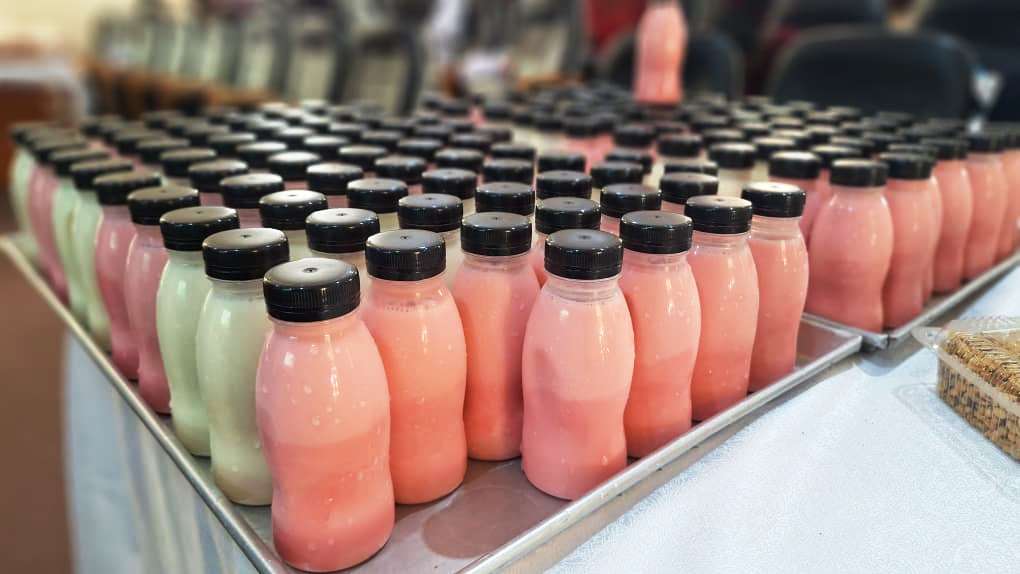
The training attracted a total of 57 participants, comprising small-scale soybean processors and graduating university students, thereby fostering knowledge exchange between academia and industry. Overall, the training contributed significantly to building technical capacity in soybean value addition, promoting entrepreneurship, and supporting the development of nutritious, market-oriented soy-based products in Uganda. The School of Food Technology, Nutrition, and Bioengineering, under the leadership of Dr. Julia Kigozi (Dean), conducts periodical trainings for agro-processors across the country to enhance technical capacity, improve product quality, and promote the adoption of modern, safe, and sustainable food processing practices. These trainings are designed to equip agro-processors with practical skills in food safety, quality assurance, value addition, post-harvest handling, nutrition, and bioengineering innovations, thereby enabling them to meet national and international standards. Through this outreach, the School contributes to strengthening agro-industrial development, reducing post-harvest losses, supporting entrepreneurship, and improving food and nutrition security while fostering stronger linkages between academia, industry, and communities.
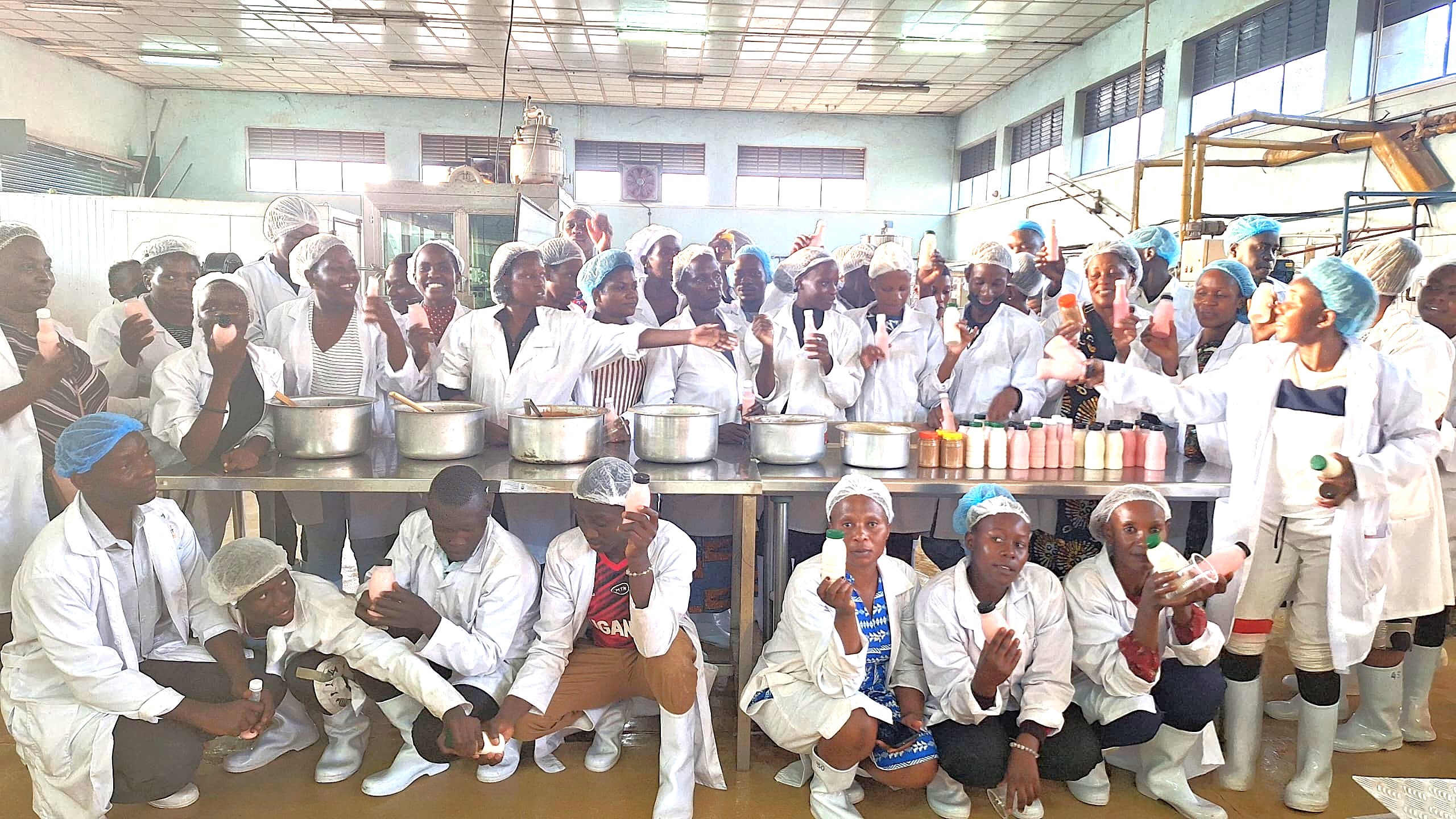
Trending
-

 General2 weeks ago
General2 weeks agoPress Statement: Makerere University Congratulates Former Staff and Students on Successful Election to Public Office
-

 General1 week ago
General1 week agoPress Statement: Makerere 76th Graduation Ceremony
-

 General3 days ago
General3 days agoCall for Applications: Admission to Postgraduate Programmes 2026/2027
-

 Natural Sciences4 days ago
Natural Sciences4 days agoSimon Mungudit: Mak’s Best Performing Male Science Student & Rising Star in Petroleum Geoscience
-

 Health5 days ago
Health5 days agoCall For Applications: MakNCD Masters and PhD Training Opportunities